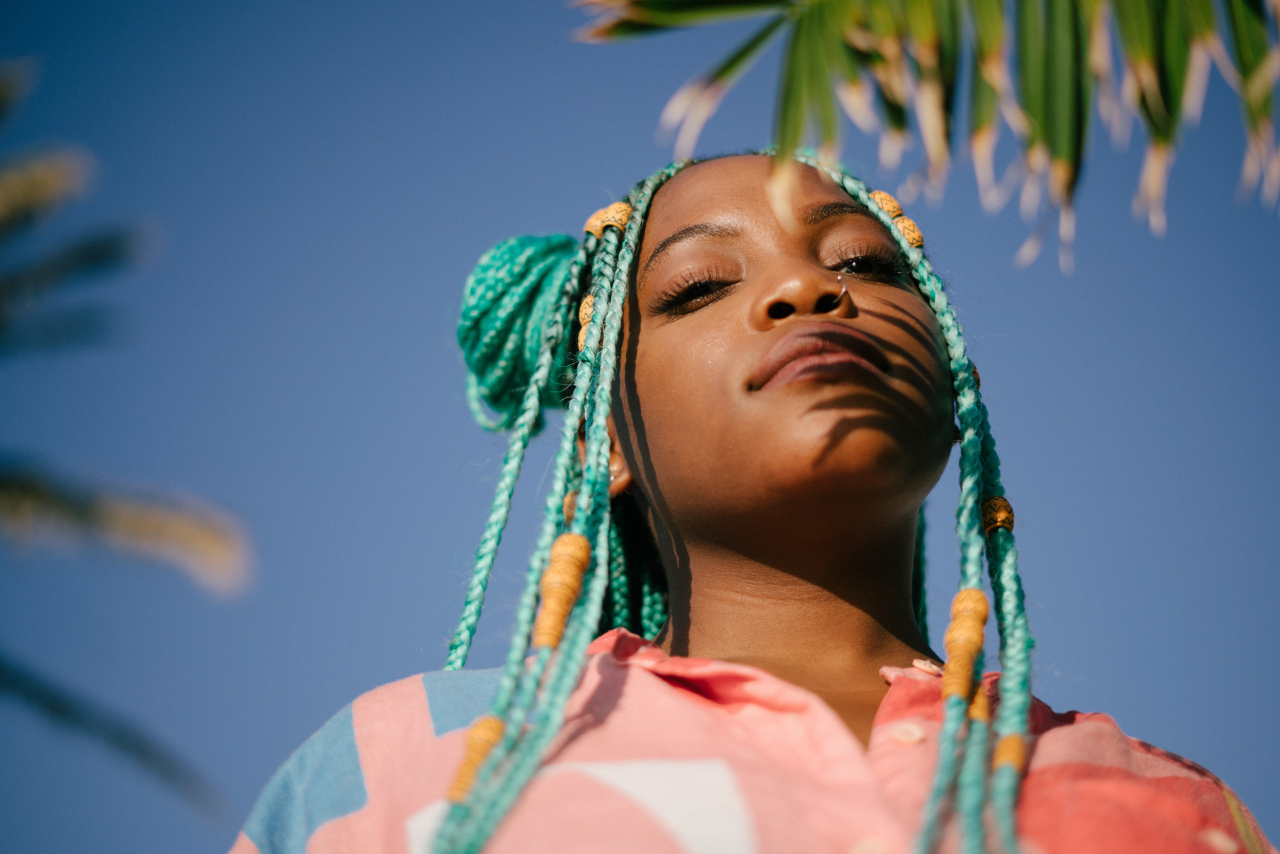Warning: This Article Contains Spoilers from Young Royals.
On Monday, March 11th, 2024, Netflix released the third and final season of the Swedish program Young Royals. The series follows Prince Wilhelm of Sweden as he navigates royal life and the prestigious boarding school Hillerska. There, he meets a working-class student, Simon Eriksson, and they pursue an unexpected romance that shakes their worlds after an intimate video of the pair goes viral. Through Simon, Wilhem and other students, the series touches on grief, mental health, bullying, homophobia, sexism, family, duty and classism in a Swedish context. In their final season, however, they briefly explore an issue that seasons one and two scarcely address: “Race.”
The theme of “Race,” specifically Blackness, is evident within the experiences of popular “it girl” Hillerska Felice Ehrencrona. She is a childhood friend of the protagonist, Wilhem, and romantically pursues him in the first season. When the intimate video outs Wilhem and Simon, she slowly lets her feelings pass and supports him as a good friend for the remainder of the series. Clear to viewers, Felice is one of the only Black women at her institution. Despite this, the first two seasons do not focus on her Blackness and instead make prominent her relationship with her mother, her experiences with misogyny, and the pressures she feels to maintain a perfect public image. This trait is not a negative for all viewers. Some find it refreshing to see a Black woman thrive within a predominantly white institution and not have a life that revolves around racial struggle. They express gratitude towards the showrunners for avoiding the cliche white “skinny and blonde” popular girl trope (@Meredith_CI) and representing “black excellence” (@AROYALPITCH).
Contrastingly, others are critical of her character development within the first two seasons. This response is a result of fan observations of Felice often wearing her hair straight in the first seasons and school staff pointing out her natural hair out in Season 2 by reminding her to fix it and avoid an “unkempt” look (@dianejwright) To express the need for this intersectional perspective, one fan states that in Season 3 viewers must see Felice’s: “struggles as a black woman, her journey of self love & acceptance of her hair…” (@CR0WNPRlNCE).
Fortunately, Season 3 does deliver fan requests while showcasing her growth. A primary conflict of the season is that Hillerska is at risk of being shut down due to corruption within the school and its student body. When Felice is chosen to speak about her experiences to an inspector, she begins to think deeply about the hierarchy within Hillerska and her place within it. This is apparent in episodes 1-2, where she experiences various micro-aggressions surrounding her hair and racial identity. When she expresses the frustration and isolation she feels due to this, her white friends misunderstand her and seemingly avoid the topic (Netflix). Additionally, in episode 3, when she asks her father about his experiences at Hillerska before she speaks to the inspector, he describes a harsh reality where he was not able to wear his “big unruly hair” and was called the n-word by peers on a regular basis (Netflix). Further explaining that due to his past experiences, he strives to be “ten times better than everyone else” to avoid racial discrimination (Netlfix). Following this conversation, the series implies that she does not mince her words when criticizing Hillerska to the inspector, which ultimately causes the school to shut down in the final episodes (Netflix). Additionally, in the season finale, Felice verbally reveals that a compliment from Simon’s sister Sara in season one encourages her to embrace her natural hair more throughout the series (Netflix). Her articulation of this shows her slowly developed self-love acceptance beautifully.
Undoubtedly, season 3 improves the portrayal of Felice’s character through an intersectional lens that shows her experiences of Blackness and those of her father. However, since this is the final season, there is no chance to expand on this, which is unfortunate since there is potential to bring awareness to Anti-Blackness within Sweden, a topic many ignore.
Overall, the Western world considers Sweden a “good” country. In fact, according to the U.S. and World Report, Sweden is the third-best nation of 2023, scoring highly in quality of life and social purpose (U.S News). Consequently, Swedish citizens and others consider the nation heaven and do not interrogate the institutional biases and discriminations that racial minorities, especially Black people, face. What the World’s Best Countries list overlooks is that in 2023, a European Agency for Fundamental Rights survey shows that among their Black respondents, including those residing in Sweden, 46 percent experience harassment and discrimination in obtaining employment or a home, which directly erodes their livelihoods (Al Jazeera). Within these results, Sweden stands out by scoring highest in housing discrimination (Al Jazeera). Additionally, various Black citizens report more subtle forms of racism. For instance, in the Cosmopolitan article “Sweden is regularly voted one of the world’s ‘happiest’ places – but as a Black woman I don’t always agree” author Akinmade-Åkerström says: “I often describe living in Sweden as being married to the most attractive man at a party. One who turns heads the minute you walk in with him on your arm. No one wants to know how it feels to be his wife or how he treats you at home, simply being with him is considered achievement enough.”(Akinmade-Åkerström). The statement speaks to the ways she becomes a spectacle due to her Blackness and the silent expectation that she assimilates to its Eurocentric standards since it is “perfect”.
Although Felice does not directly relate to all of the issues above due to living in a world of privilege, more time with her character could help highlight them. For example, her other family members and their journeys can provide further insight. We see through her father that his experience with racism was more severe, so what about her grandparents and others? What did her family do to obtain their status within Sweden, a country where Black people are a minority? What challenges did they face along the way? Also, a more in-depth focus on her Blackness can also show viewers the harsh realities of discrimination in Sweden with examples of overt racial harassment and extensions of the ways that her character simultaneously assimilates and rebels from the status quo to survive.
As Sweden’s most popular Netflix series (Netflix), Young Royals impacts views of Swedish people, most significantly youth. A more specific focus on Felice’s Blackness and more time to watch her character develop could build more empathy and awareness towards Sweden’s Black population. There are improvements in the last season, but due to a lack of depth, the series only provides viewers a snippet of what this could look like. As a result, the series misses a vital opportunity to stand out among other Swedish programs while simultaneously providing their Black citizens with meaningful representation that has the potential to increase the visibility of their issues and push young people to advocate for their liberation.






